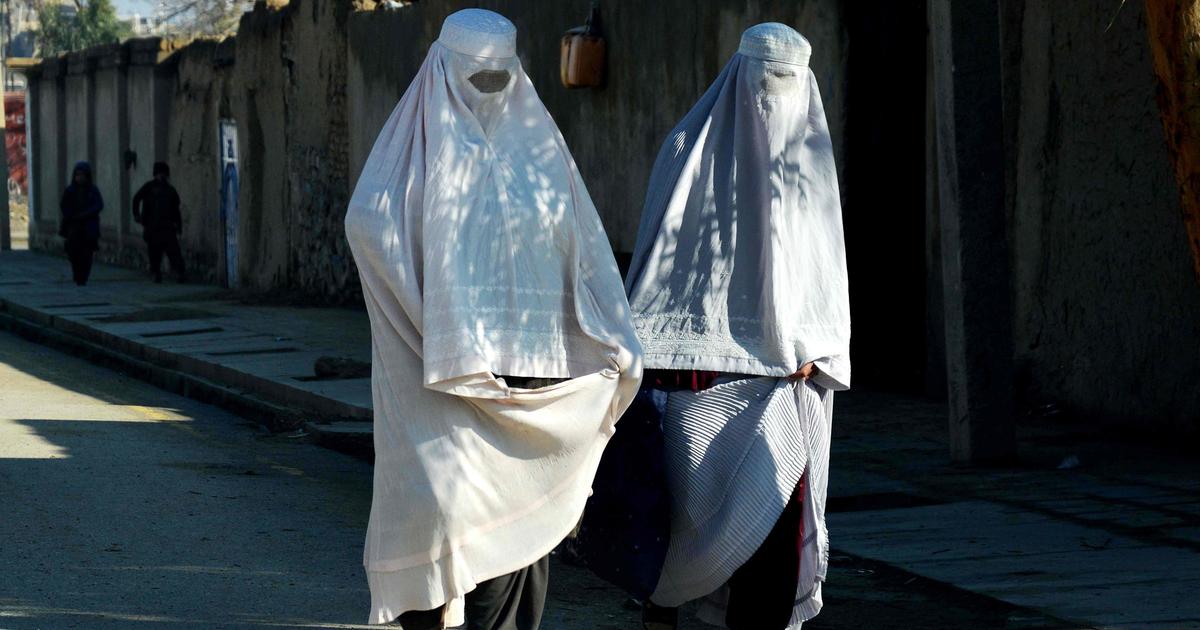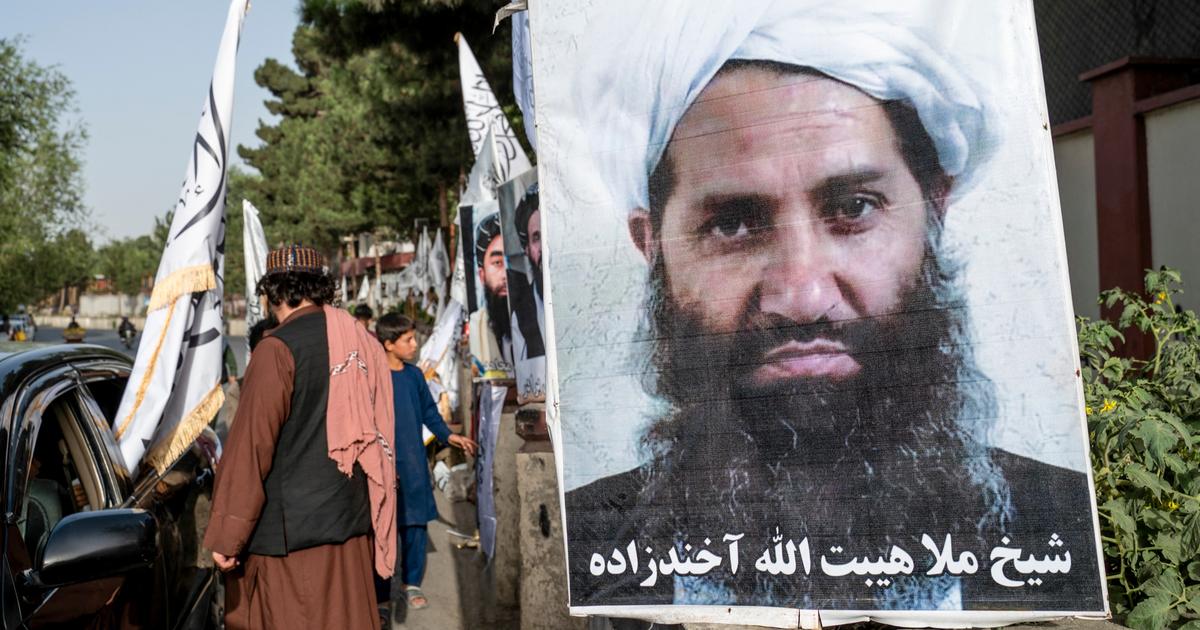The stewardesses explain it when they act out the flight instructions that we hardly pay attention to: one has to save oneself before one can help others.
Sonita Alizadeh (Herat, 1997) managed to save herself from her by surviving her own family, who twice tried to sell her to men looking for a wife.
It was the tradition of the country where she was born: Afghanistan.
In time, she would discover other ways of survival beyond flight.
She was also saved by looking within herself, learning to love her mother again after, having experienced it herself, her mother did not spare her that experience.
Thus, saving herself, Sonita saved others.
She has saved many women, she has made many young women think since she managed to turn her protest into song.
El País Semanal
from Bard College, in the north of the State of New York, where he is currently studying at university.
Very close to where he was born, in western Afghanistan, is the Shahrak-e Sabz refugee camp. A group of BBC reporters traveled there two years ago to tell the story of Naranin. She was five years old when her parents – who cannot read or write – sold her for around 3,000 euros. His mother said that it was about surviving: they wanted to pay for the medical treatment that one of their four children needed. Girls are not only for sale in Afghanistan. It happens in Burma, in China, in Syria, in North Korea. They are sold as wives, but become labor and sex slaves at just 10 years old. It is a widespread problem in the world that links extreme poverty and lack of education with a profound lack of humanity.
Sonita says that each year there are more than 12 million girls who are sold as possible wives in the world.
This is what happened to her and her sisters in Tehran.
They had arrived fleeing the Taliban regime in Afghanistan.
After walking hundreds of kilometers with her mother and sisters, through rain, sun and snow, to reach Iran, their new country did not provide them, by humanitarian law, a better future.
But they continued on their way, first with her family and then by herself.
“I hope that my fight gives strength to other women to decide their own destiny”, says Sonita Alizadeh.©Emmanuele Lubezki
If Sonita's first escape was from the Taliban, the second was from her own mother.
Escaping her from the guardianship of her mother, who in Iran wanted to sell her for the second time, cost this singer to lose all her documentation.
She also happens to live as a refugee.
It was then that an NGO helped her.
At the school for undocumented refugees in Tehran, Sonita began to sing.
I was 15 years old.
And she managed to do it with joy.
The force that she had displayed to escape from her was dedicated in that school to compose a danceable, pop, catchy song.
“But I realized that my message, what I had to tell, was too sad.
It didn't fit in a single song”, she tells from the field of Annandale on Hudson, where the university where she studies is located.
What Sonita had to say also found no accommodation among the strains of pop music that she liked.
That's why she tried rap.
What she wanted to sing was actually a complaint.
Sonita wanted to talk about the inhumane obligation to marry that, as had happened to her, her friends, and her sisters, countless girls still endure in many countries around the world.
"The strength of rap, also its nature to protest, made me feel good."
She realized that “people who listen to rap pay attention to the lyrics of the songs.
They vibrate both for the music and for the message.
They are looking for that information.
They feel engaged with what they hear.
I believe that rap is a vehicle to share transformative messages.
His strength can change attitudes”, she continues explaining herself.
In the video for the song
Daughters for Sale
, a bride gets her wedding makeup done.
She is young and beautiful.
He doesn't smile.
He has a television on.
And it is there, on that screen within the screen, that Sonita sings: “I scream to make up for the silent life of so many women.
/ I scream to make my body speak of its wounds”.
Although I did not go to school, my life experience taught me a lesson: it is essential to aim high
sonita alizadeh
The video tells how many young women hear the story that she was sold by her father.
And how, knowing that she escaped, the bride who was doing her makeup at the beginning also ends up fleeing, as Sonita points out, to avoid suicide or burial while she is still alive.
It reached a million views on YouTube.
The lyrics, the music and its story went viral.
Even Afghan television picked up that information.
"That's the power of music: it's international," she explains.
What she did in Iran also went viral in Afghanistan.
“As much as a song can go viral there,” she clarifies.
The Iranian filmmaker Rokhsareh Ghaemmaghami also met him like this, on the web.
And contacted her.
She talked to Sonita.
She suggested that he go further.
She wanted to make a documentary about her life:
Sonita
.
When the film was released, Sonita was invited to study in the United States.
"I made my story known, I had the strength to tell it and that changed my life," he sums up.
His bravery earned him an education.
Today he studies Human Rights and Music.
"This is me.
That can be many more women,” she says.
With some reserve, she says that her sisters and friends suffered worse luck and were sold.
Sonita can't explain if she still sees them.
He prefers not to comment on that part of his life to avoid risks for them.
But he does insist on declaring that he does not hate his mother.
He understood that he did not know more.
That he was repeating a tradition that he had learned.
"I love her.
Oddly enough, he did what he thought was best for everyone.
I do not recommend any attitude.
If someone wants to change his life, he or she must do it.
No one can change your life for you."
Today Sonita Alizadeh, singer, rapper, star of a film and student at Bard College, is one of the 12 protagonists of the Lavazza calendar that has brought together in its pages people who, according to Italians, are changing the planet.
She was photographed by Emmanuel Lubezki.
"Do you think you've done your part?"
—I write and sing about what matters to me: war, child exploitation.
I don't know if my music is or will always be political.
I see myself more as a singer advocating for human rights.
And that he uses his music for that.
I grew up as a refugee girl and that forces you to rethink life on a daily basis.
Every morning.
Although I did not go to school, my life experience taught me a lesson: it is essential to aim high.
And try to fulfill dreams.
For that you have to be able to dream.
Exclusive content for subscribers
read without limits
subscribe
I'm already a subscriber


/cloudfront-eu-central-1.images.arcpublishing.com/prisa/KA3LQ5ZEAFEQXOIZXJEEVDUZUQ.jpg)






